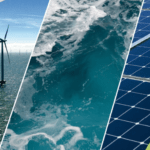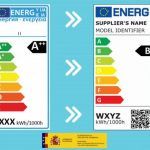The European Commission has approved, under EU State aid rules, a scheme to support electricity production from renewable energy sources in Lithuania. The measure, open to all types of renewable generation, will contribute to the EU environmental objectives without unduly distorting competition.
On 1 May 2019, Lithuania will introduce a new aid scheme to support installations generating electricity from renewable sources such as wind, solar or hydropower. The scheme will help Lithuania reach its national target share of renewable energy sources in gross final energy consumption, which has been set at 38% by 2025. The renewable energy scheme will be applicable until 1 July 2025 or, alternatively, until the 38% target is reached.
The scheme, with an overall budget of €385 million, will be open to all renewable installations. The installations benefitting from the scheme will receive support in the form of a premium, which will be set through a competitive bidding process for all types of installations, irrespective of the size of the installation and the renewable technology used.
However, the final premium will not be set at a level greater than the difference between:
- the electricity market price in Lithuania (“reference price”); and
- the average production costs of the most cost-efficient renewable energy technology in Lithuania (“maximum price”). This has been defined by the Lithuanian authorities as onshore wind power generation.
Both the reference price and the maximum price will be set by the Lithuanian national energy regulator for each auction.
Background
The Commission assessed the scheme under EU State aid rules, in particular under the 2014 Guidelines on State aid for environmental protection and energy.
The Commission found that the aid has an incentive effect, as the market price does not fully cover the costs of generating electricity from renewable energy sources and the beneficiaries will have to apply for the aid before the generating installations start operating. The aid is also proportionate and limited to the minimum necessary, as it only covers the difference between the production costs and the market price of electricity.
Therefore, the Commission concluded that the Lithuanian measure is in line with EU State aid rules, as it promotes the generation of electricity from renewable sources, in line with the environmental objectives of the EU, without unduly distorting competition.
More information
Access the complete news
Related video: The energy transition is happening







Leave a Reply